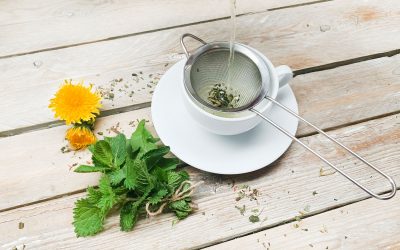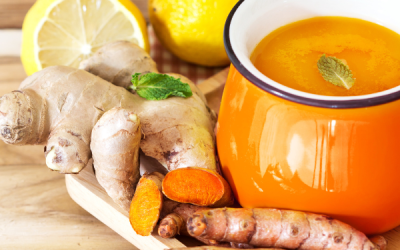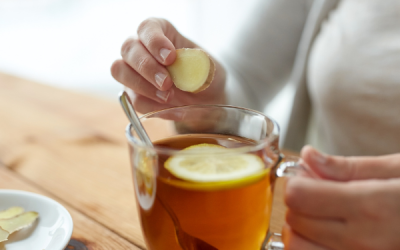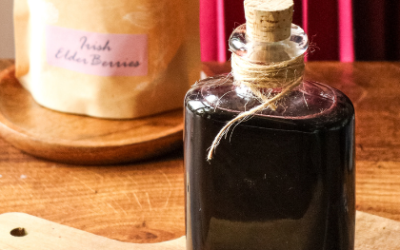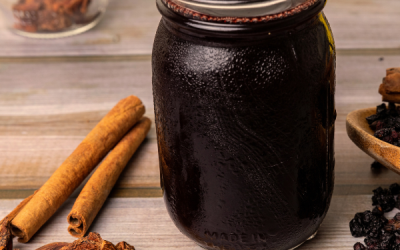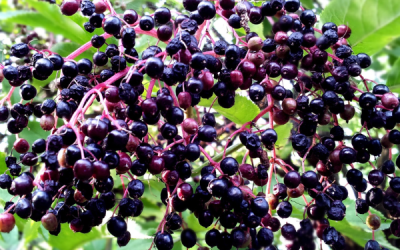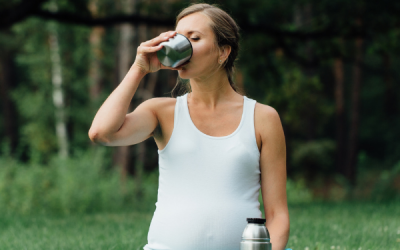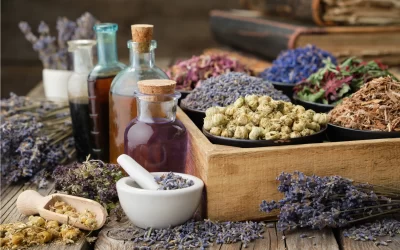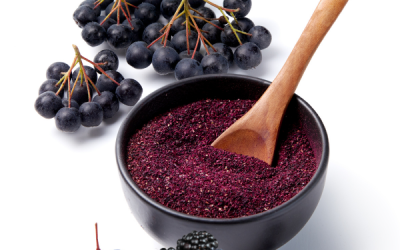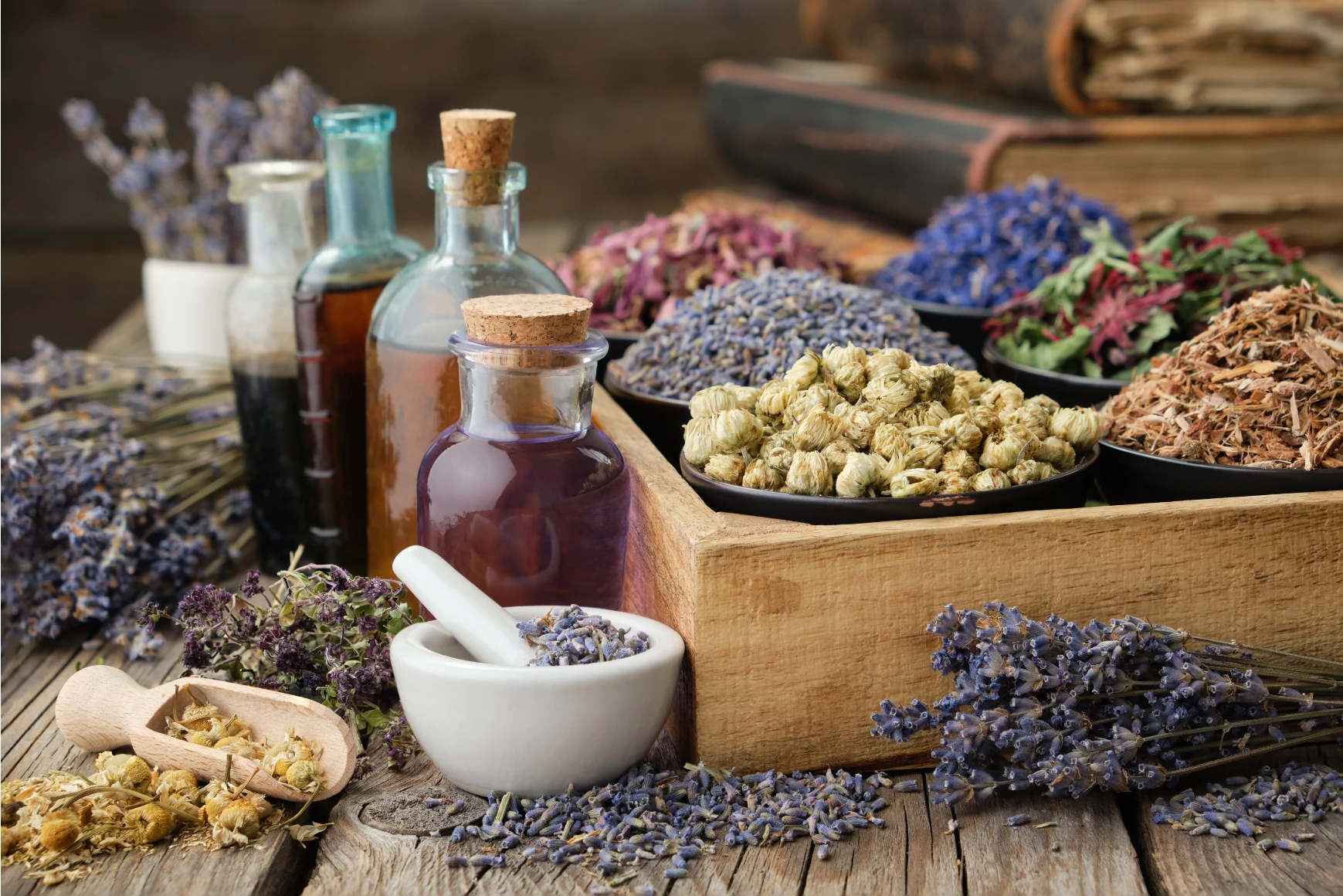
TINCTURES – WHAT ARE THEY AND HOW DO YOU USE THEM?
What is a tincture you may ask? Tinctures are liquid extracts made from herbs that you take orally (by mouth). They are usually extracted in alcohol, but they can also be extracted in vegetable glycerine or apple cider vinegar (non-alcohol). Tinctures are easy and convenient to use. Tinctures are also easier to give to children as they have to take only small amounts (see Children’s Dosage Guide for suggestions). Because they are taken directly under the tongue, they enter the bloodstream much more quickly and directly than by any other means. This means that the action in the body is usually quicker. Although some herbs will have an immediate effect, such as those used to help one relax, others that are more nutritive and building in nature may take several weeks of continual use before best results are seen (much like a multi-vitamin).
Tea vs. Tincture?
Teas and tinctures are made from the same combination of herbs – it’s just two different ways of taking them. Some people enjoy teas and enjoy the relaxing aspects of taking a time-out to drink a cup of tea. Others may not care for tea or do not have time to brew and drink a cup of tea. For these people, a tincture is perfect. You take the drops and you are done. Tinctures are also very convenient, as nothing needs to be brewed. You can easily carry a bottle of tincture in your purse and have it available to you at all times. (Serenity tincture for anxiety, nervousness or injuries is a popular one for your handbag.) You can also make an instant cup of tea out of a tincture by adding two dropperfuls (squeezes) of tincture to a cup of warm water. Note: Two dropperfuls of tincture equals one cup of tea.
When you want an immediate response, such as herbs for relaxation or sleep, a tincture may give you more immediate results. For nutritive herbs that can take several weeks of use to see results, either a tea, a tincture or a capsule would be fine. It comes down to personal preference.
What is a Tincture Dropperful? How Do You Take a Tincture?
Tinctures are usually taken by the dropperful (also known as a squeeze). A dropperful is the amount of liquid that fills the glass tube of the dropper when the bulb on the dropper top is squeezed and released, drawing the liquid up into the glass dropper tube. The liquid may fill the glass tube only a small portion of the way, but that is considered a “dropperful”. A dropperful equals approximately 30 drops.
On all dropper tops, no matter how large or small of a tincture bottle it comes with or how long the glass tube on the droppertop is, the bulb (the thing you squeeze) is the same size on them all. The bulb is what determines how much liquid fills the tube, not the length of the tube itself.
A standard suggested adult dosage for tinctures is 2 dropperfuls two to three times a day. For children under 12, please see our Children’s Dosage Guide for recommendations.
With this standard dosing suggestion (for adults) of two dropperfuls three times a day, tincture bottles typically last this long:
- 25ml. tincture bottle will last about one week
- 50ml. tincture bottle will last two weeks
- 100ml. tincture bottle will typically last about a month.
To take a tincture, it is best to take the drops directly under the tongue. This gets the herb directly into the bloodstream. If necessary, it is fine to dilute the tincture in a small amount of water or juice. It may be flavored with lemon or honey to disguise the taste. For herbs that I’m not fond of, I will put the drops into a tiny bit of warm water, add some honey, stir and quickly drink. It really helps! (Note: never give honey to a child under one year of age.) You may also put the dropperful of tincture into a cup of warm or hot water for an instant cup of herbal tea. Heat your water first, before adding the herbs. Heating the herbs in a microwave may kill or weaken their healthful benefits. Taking the tincture directly under the tongue and avoiding any liquids or foods for at least 15 minutes afterwards provides the best results.
Are Tinctures Safe for Pregnant or Nursing Women? How About Children and Babies?
Yes, tinctures are fine for pregnant and nursing women, even the alcohol-based versions. One dose of an alcohol-based tincture has approximately the same alcohol content as eating a very ripe banana. A 25ml bottle of tincture, should you drink the entire bottle at one sitting, would be the equivalent of one drink, i.e one glass of wine or beer. But you will not be drinking the entire thing at one sitting – you are taking drops of it at a time, spread out over the course of one week, and at this dose, the alcohol content is negligible. Non-alcohol tinctures are good for children, those with alcohol sensitivities, or for those who simply prefer a non-alcohol product.
For babies, we recommend that nursing mothers take the tincture, which will then pass on to their babies through the breastmilk. For those who are not nursing, please see our FAQ’s page for ideas as to the best ways to administer herbs to your baby. The Children’s Dosage Guide outlines general dosage recommendations for children, which is available on our website. One thing of note – babies will want to suck on the dropper. Do not let them, as they could break the glass dropper by biting it, and they could also contaminate the tincture, causing mold to form. This is very easy to spot – it will be a whitish-grey blob that floats on the top of the tincture or grows in the glass dropper tube. If this happens, please discard the product.
For some herbs, such as roots, barks, berries, and non-aromatic seeds, it takes a powerful liquid such as alcohol to extract the medicinal properties from the herb. Extracting with a less-powerful liquid will only result in a less-effective product – really, a waste of your time and money. This is why you will see some tinctures available only in an alcohol-base. We refuse to sell anything that is not of the highest quality.
To dissipate the alcohol: For those who prefer a non-alcohol product and there’s not one available, you can put the drops of tincture into a small amount of hot water (the amount is not important, it is the heat and allowing the tincture to sit for 5-10 minutes in the hot water), and this will dissipate the alcohol content, leaving only the herb matter and water behind. (Be careful not to have your water so hot that you burn yourself.)
What is the Shelf Life of my Tinctures? How Should I Store Tinctures?
Tinctures are extracted most often in alcohol because it is such a potent solvent. As mentioned before, some herbs simply will not release their medicinal qualities to a solvent that is less potent, such as water, apple cider vinegar or vegetable glycerine. It takes something stronger, and alcohol is perfect. It also acts as an effective preservative. Alcohol-based tinctures have a virtually unlimited shelf life if stored in a cool, dark location. Refrigeration is not necessary.
Tinctures made from apple cider vinegar are wonderful, as the apple cider vinegar has wonderful health-building qualities of its own. They can be used as salad dressings, marinades or in foods, as well as for your regular tincture use. The shelf life of apple cider vinegar tinctures is very short – about a year or so if kept in a cool, dark cupboard or refrigerator (recommended). Apple cider vinegars are considered non-alcohol tinctures.
Vegetable glycerine is also used to make non-alcohol tinctures – these tinctures are known as glycerites. They have a much longer shelf life than the apple cider vinegar – 3 to 5 years if stored in a cool, dark cupboard. Tinctures made of vegetable glycerine are wonderful for children. They have a sweet taste to them and can make even bad tasting herbs taste good! Glycerine does not have the extraction power that alcohol does, but it still does a fantastic job and results in a highly effective product. They are a great choice for children or for those who prefer a non-alcohol product. PLEASE NOTE: As non-alcohol tinctures have no alcohol content to them to act as a preservative, they can easily become contaminated and are at risk for growing mold. To prevent this from happening, do not touch the glass dropper to any part of the mouth, do not let children suck on the glass dropper tube (which can break in their mouths as well), do not touch it with your hands, lay the dropper top on countertops or anything that might allow a microbe onto the glass tube and in turn, into the bottle, which can start mold. Mold is white to light grey in color and tends to float on top of the liquid or in the glass dropper tube. If your glycerine-based tinctures become contaminated and have mold, do not use them. Throw them away.
For more information on what we use to make our tinctures (including information on any potential allergies), please see The HealthTea tinctures shop.
Store your tinctures and all of your herbs in a cool, dark cupboard. This includes your cooking spices, which most people keep above a hot cooker. Keeping them in a heated area can cause your herbs and spices to become weak and less effective more quickly. You may carry and keep tinctures in a purse or briefcase. Be sure not to leave your tinctures in a hot area for long periods of time, such as in a car, as heat can negatively impact the quality of your herbal products.

5 Fat Burning Herbal Teas To Support Weightloss!
DISCLAIMER: Herbal teas can’t replace a healthy diet and regular movement, but they are able to support your weight loss efforts!! Let's find out how — Let's first acknowledge the fact that fat is not always a bad thing! We need some fat for our bodies to be able to...
Turmeric Ginger Tea for Circulation
Many people who are lacking in energy often blame a slow metabolism. People with an inability to focus often attribute it to stress & fatigue. Someone feeling out of breath may wonder if they have a respiratory issue such as asthma. While all of these things...
Ginger & Turmeric – Nature’s Most Powerful Anti-inflammatory Combo!
From fighting nausea to aiding in digestion, ginger is a powerful plant that delivers results. In the same plant family as ginger sits turmeric, a root that aids with inflammation and controlling pain. Alone, these plants contain dozens of benefits, but together their...
Back-to-School Health Checklist: 13 Must-Knows To Boost your Child’s Defenses
Do you feel like your child is always sick once the school year starts? If you struggle with keeping your child healthy during the school season and wonder what you can do to make your kiddo less prone to repeat bouts of colds, strep throat, and ear infections, check...
8 Proven Benefits Of Elderberries
Have you ever wondered about the real health benefits of elderberry syrup? Is the dark berry pure winter gold or just an old wives’ tale??? We’ve been making elderberry syrup for years now to help combat the seasonal doom & gloom of our wet Irish climate. It...
How To Make Simple Herbal Syrups with Recipes
Herbal syrups are a delicious, yet potent, natural remedy that make taking something good for you much easier. Anyone can enjoy herbal syrups, but children seem to find them especially nice and often take herbs in a syrup that they would otherwise have nothing to do...
7 HEALTH BENEFITS OF ELDERBERRY TEA
Brimming with flavor and vitality, elderberry tea knows how to freshen your senses and bring a surge of sweet strength to your immune system too. Given superfood status, drinking elderberry tea is amazing for your health from tip to toe. This magic tea can help...
What Herbal Teas Are Safe in Pregnancy?
If you’re a tea drinker, you’re most likely curious if it’s safe to drink tea during pregnancy? You probably want to know if there are any teas you need to avoid too. With all of the warnings about consuming caffeinated drinks during pregnancy, many pregnant...
Top 6 Herbs for Healthy Skin, Hair & Nails
Looking your best on the outside has a lot to do with how healthy your body is on the inside. This holds true for your hair, skin, and nails, which all need a unique set of nutrients and compounds to grow strong and beautiful. Of course, eating a healthy and...
5 Amazing Benefits of Berry Powders
Berry powders are a perfect way to supplement any diet, especially for those who frequently travel or who have a busy lifestyle. Although dehydrated, powders contain the same vitamins and minerals as their fresh and frozen counterparts. They are convenient, versatile,...

